Cover
Copyright
Credits
About the Author
About the Reviewer
www.PacktPub.com
Customer Feedback
Table of Contents
Preface
Chapter 1: Revisiting Multithreading
Getting started
The multithreaded application
Makefile
Other applications
Summary
Chapter 2: Multithreading Implementation on the Processor and OS
Defining processes and threads
Tasks in x86 (32-bit and 64-bit)
Process state in ARM
The stack
Defining multithreading
Flynn's taxonomy
Symmetric versus asymmetric multiprocessing
Loosely and tightly coupled multiprocessing
Combining multiprocessing with multithreading
Multithreading types
Temporal multithreading
Simultaneous multithreading (SMT)
Schedulers
Tracing the demo application
Mutual exclusion implementations
Hardware
Software
Summary
Chapter 3: C++ Multithreading APIs
API overview
POSIX threads
Windows support
PThreads thread management
Mutexes
Condition variables
Synchronization
Semaphores
Thread local storage (TLC)
Windows threads
Thread management
Advanced management
Synchronization
Condition variables
Thread local storage
Boost
Qt
QThread
Thread pools
Synchronization
QtConcurrent
Thread local storage
POCO
Thread class
Thread pool
Thread local storage (TLS)
Synchronization
C++ threads
Putting it together
Summary
Chapter 4: Thread Synchronization and Communication
Safety first
The scheduler
High-level view
Implementation
Request class
Worker class
Dispatcher
Makefile
Output
Sharing data
Using r/w-locks
Using shared pointers
Summary
Chapter 5: Native C++ Threads and Primitives
The STL threading API
Boost.Thread API
The 2011 standard
C++14
C++17
STL organization
Thread class
Basic use
Passing parameters
Return value
Moving threads
Thread ID
Sleeping
Yield
Detach
Swap
Mutex
Basic use
Non-blocking locking
Timed mutex
Lock guard
Unique lock
Scoped lock
Recursive mutex
Recursive timed mutex
Shared mutex
Shared timed mutex
Condition variable
Condition_variable_any
Notify all at thread exit
Future
Promise
Shared future
Packaged_task
Async
Launch policy
Atomics
Summary
Chapter 6: Debugging Multithreaded Code
When to start debugging
The humble debugger
GDB
Debugging multithreaded code
Breakpoints
Back traces
Dynamic analysis tools
Limitations
Alternatives
Memcheck
Basic use
Error types
Illegal read / illegal write errors
Use of uninitialized values
Uninitialized or unaddressable system call values
Illegal frees
Mismatched deallocation
Overlapping source and destination
Fishy argument values
Memory leak detection
Helgrind
Basic use
Misuse of the pthreads API
Lock order problems
Data races
DRD
Basic use
Features
C++11 threads support
Summary
Chapter 7: Best Practices
Proper multithreading
Wrongful expectations - deadlocks
Being careless - data races
Mutexes aren't magic
Locks are fancy mutexes
Threads versus the future
Static order of initialization
Summary
Chapter 8: Atomic Operations - Working with the Hardware
Atomic operations
Visual C++
GCC
Memory order
Other compilers
C++11 atomics
Example
Non-class functions
Example
Atomic flag
Memory order
Relaxed ordering
Release-acquire ordering
Release-consume ordering
Sequentially-consistent ordering
Volatile keyword
Summary
Chapter 9: Multithreading with Distributed Computing
Distributed computing, in a nutshell
MPI
Implementations
Using MPI
Compiling MPI applications
The cluster hardware
Installing Open MPI
Linux and BSDs
Windows
Distributing jobs across nodes
Setting up an MPI node
Creating the MPI host file
Running the job
Using a cluster scheduler
MPI communication
MPI data types
Custom types
Basic communication
Advanced communication
Broadcasting
Scattering and gathering
MPI versus threads
Potential issues
Summary
Chapter 10: Multithreading with GPGPU
The GPGPU processing model
Implementations
OpenCL
Common OpenCL applications
OpenCL versions
OpenCL 1.0
OpenCL 1.1
OpenCL 1.2
OpenCL 2.0
OpenCL 2.1
OpenCL 2.2
Setting up a development environment
Linux
Windows
OS X/MacOS
A basic OpenCL application
GPU memory management
GPGPU and multithreading
Latency
Potential issues
Debugging GPGPU applications
Summary
Index
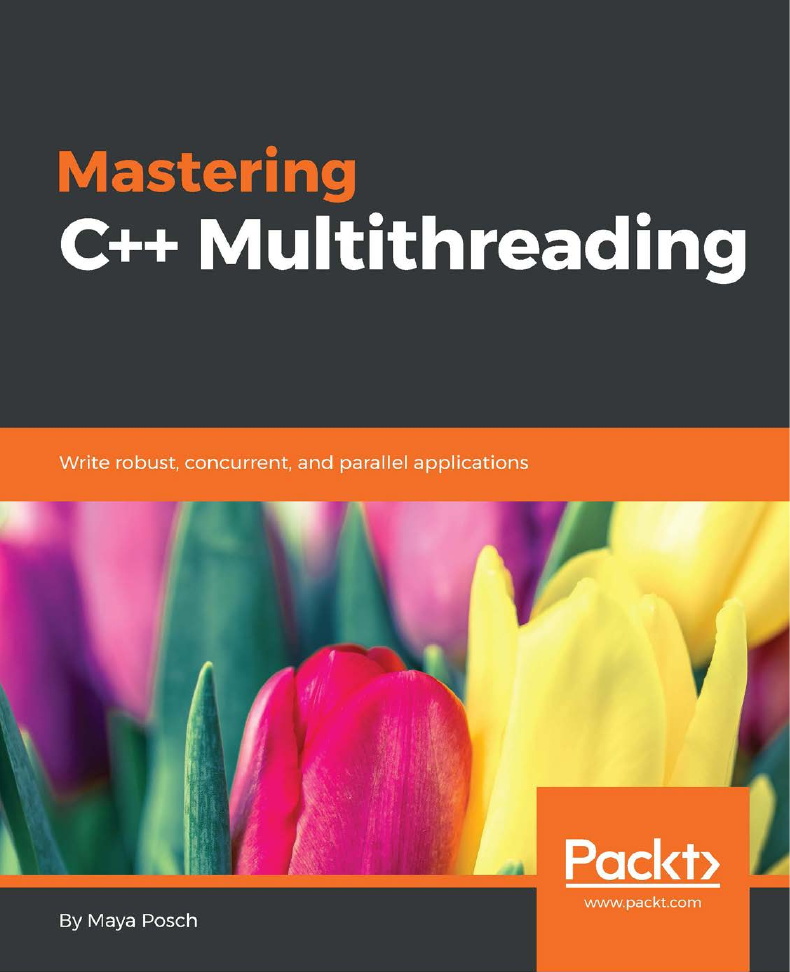
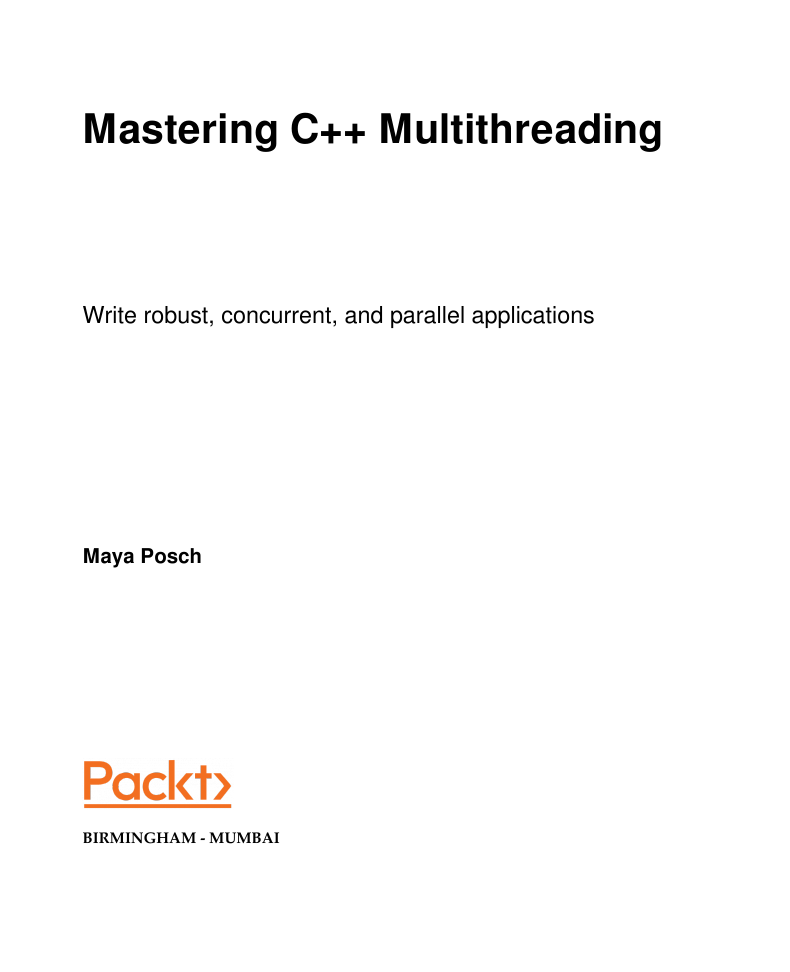
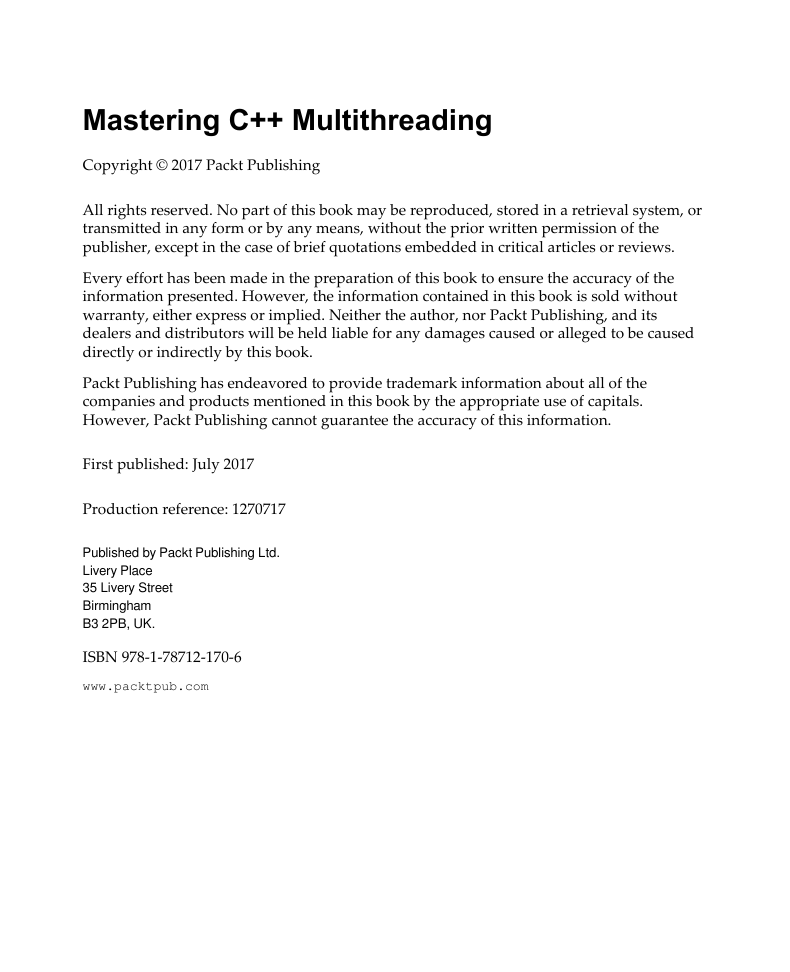

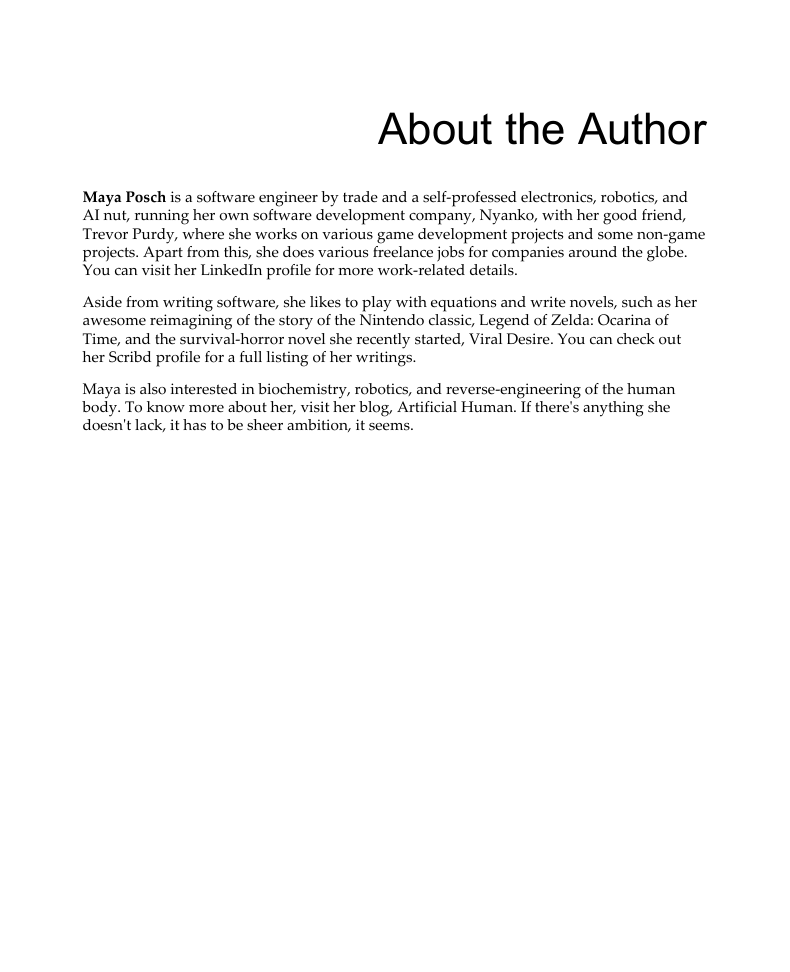
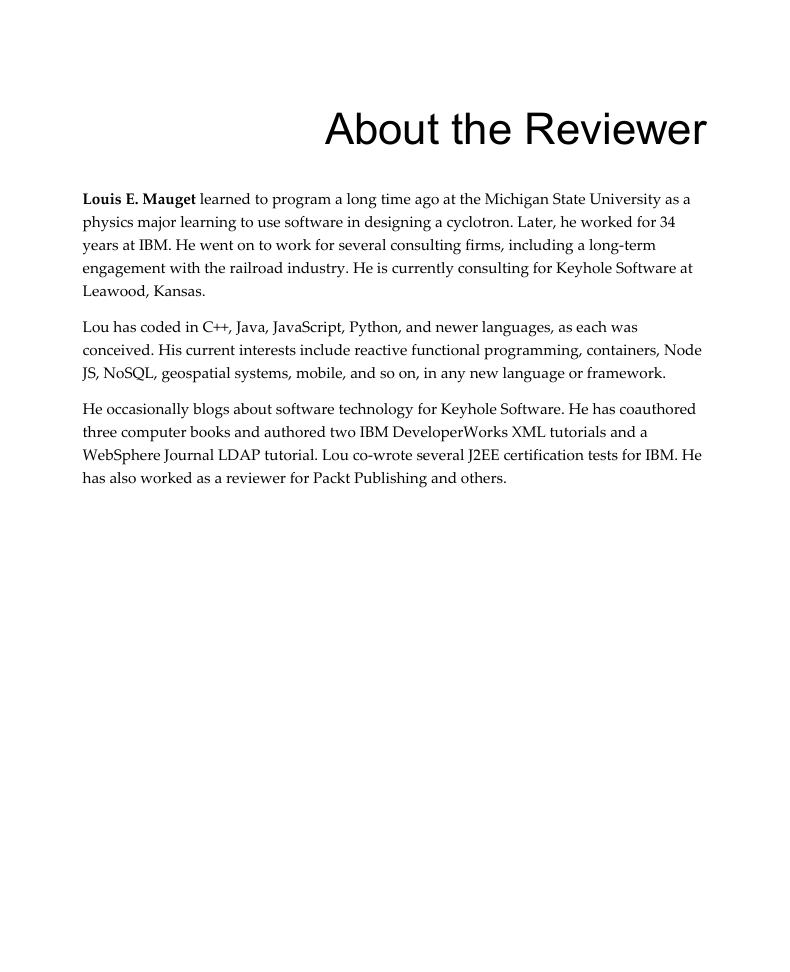
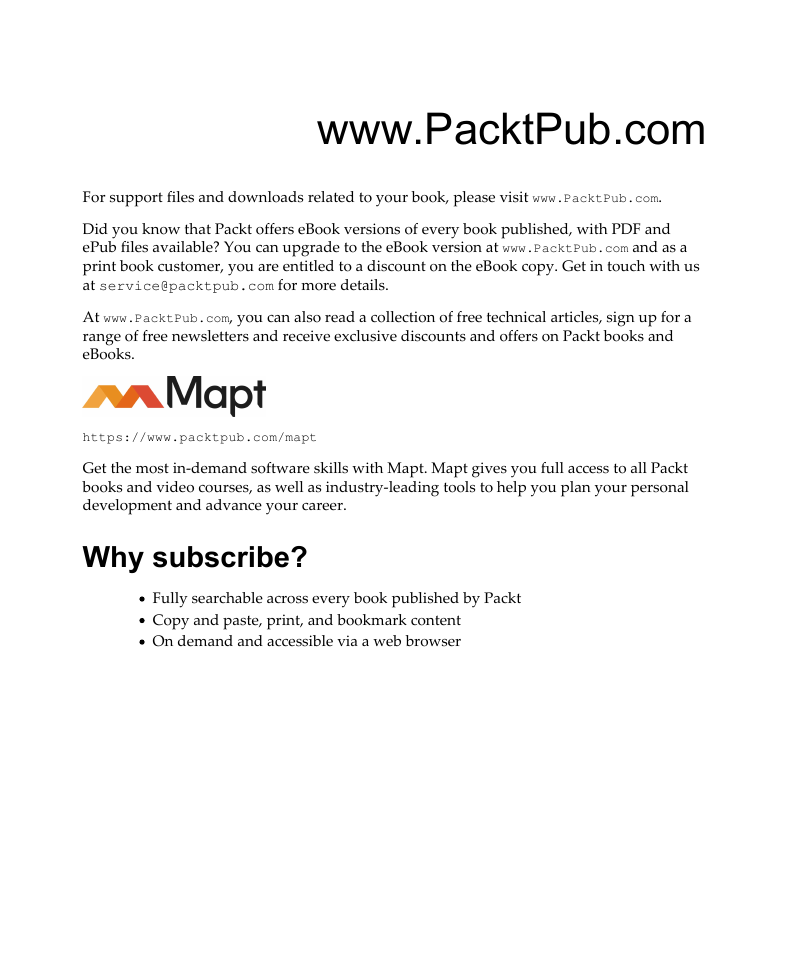









 2023年江西萍乡中考道德与法治真题及答案.doc
2023年江西萍乡中考道德与法治真题及答案.doc 2012年重庆南川中考生物真题及答案.doc
2012年重庆南川中考生物真题及答案.doc 2013年江西师范大学地理学综合及文艺理论基础考研真题.doc
2013年江西师范大学地理学综合及文艺理论基础考研真题.doc 2020年四川甘孜小升初语文真题及答案I卷.doc
2020年四川甘孜小升初语文真题及答案I卷.doc 2020年注册岩土工程师专业基础考试真题及答案.doc
2020年注册岩土工程师专业基础考试真题及答案.doc 2023-2024学年福建省厦门市九年级上学期数学月考试题及答案.doc
2023-2024学年福建省厦门市九年级上学期数学月考试题及答案.doc 2021-2022学年辽宁省沈阳市大东区九年级上学期语文期末试题及答案.doc
2021-2022学年辽宁省沈阳市大东区九年级上学期语文期末试题及答案.doc 2022-2023学年北京东城区初三第一学期物理期末试卷及答案.doc
2022-2023学年北京东城区初三第一学期物理期末试卷及答案.doc 2018上半年江西教师资格初中地理学科知识与教学能力真题及答案.doc
2018上半年江西教师资格初中地理学科知识与教学能力真题及答案.doc 2012年河北国家公务员申论考试真题及答案-省级.doc
2012年河北国家公务员申论考试真题及答案-省级.doc 2020-2021学年江苏省扬州市江都区邵樊片九年级上学期数学第一次质量检测试题及答案.doc
2020-2021学年江苏省扬州市江都区邵樊片九年级上学期数学第一次质量检测试题及答案.doc 2022下半年黑龙江教师资格证中学综合素质真题及答案.doc
2022下半年黑龙江教师资格证中学综合素质真题及答案.doc